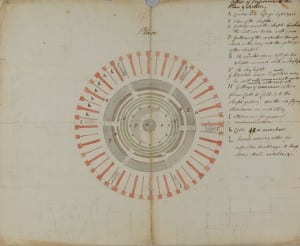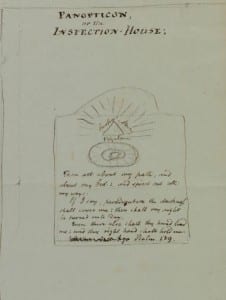New material to transcribe: correspondence, procedure, juries, petitions and Latin America
By uczwlse, on 10 February 2017
Sound the klaxon, we have new material on the Transcription Desk! Five new boxes are now available for any new or existing transcribers to explore. Boxes 13, 26, 54, 60 and 81 have been uploaded. This means that we now have 80 boxes and more than 40,000(!) pages of Bentham’s writings on our Transcription Desk.
These new boxes contain a mixture of Bentham’s correspondence and legal writings. Much of the material reflects Bentham’s fascincation with rising new democracies in Spain, Portugal and Latin America. In the early nineteenth century, Bentham was keen to play a direct role in the codification of new systems of law in these regions. These papers also include various elements of Bentham’s crusade for legal reform. He wanted to tighten the jury selection process and had the idea of using petitions to compel the British Parliament to remodel the judicial establishment.
![Elements of the Art of Packing, 6 September 1809 [Image courtesy of UCL Special Collections]](https://blogs.ucl.ac.uk/transcribe-bentham/files/2017/02/026_066_001-200x300.jpg)
UCL Special Collections, Bentham Papers, box xxvi, fo. 66, Elements of the Art of Packing, 6 September 1809 [Image courtesy of UCL Special Collections]
Users can also view pages from these boxes through the Untranscribed Manuscripts page.
We invite you to take a look through these boxes and see what you can find to transcribe. Why did Bentham feel that packed juries obstructed liberty of the press? How convincing were his plans to codify new laws in Spain and Portugal? Could you have been persuaded to sign one of Bentham’s petitions calling for legal reform?
 Close
Close




